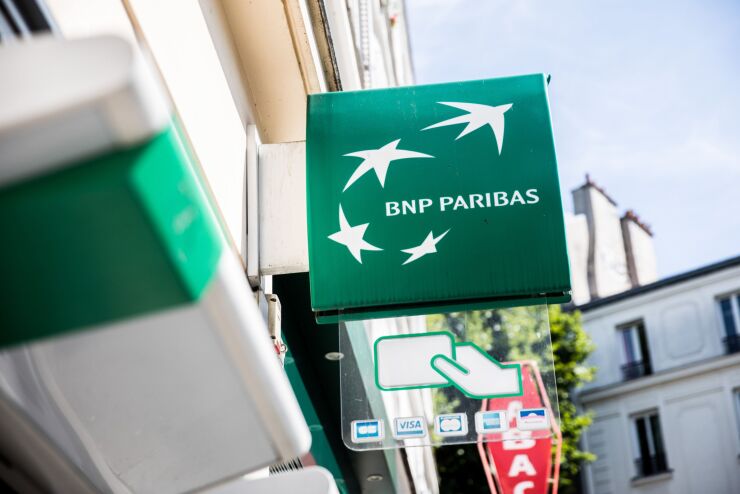The information you need to start your day, from PaymentsSource and around the web:
Chain link
BNP Paribas has launched an integration with Coupa Pay to address supply chain payment challenges with a virtual card.
Coupa's spend management platform will support the virtual cards, which the bank's business clients can automatically send to suppliers. That will automate invoice matching, reconciliation and tracking.
The bank hopes to benefit from increased attention on supply chain automation, particularly during the coronavirus outbreak, which has disrupted supply chains. The pandemic's economic fallout has also stressed

Point of sale credit
Paytm has extended its instant credit to include more merchant chains and higher limits as payment companies globally push installment payment and other
The limit for Paytm Postpaid has been increased to about $1,300 for monthly spend, with the hope of financing furniture, consumer electronics and other household goods, reports
Splitit, Affirm and Klarna have all reported fast uptake of their point of sale credit programs during the pandemic, and other firms such as
Incentive revamp
Spanish challenger bank Bnext has updated its rewards program to enable direct purchases from stores to trigger cash back rebates.
By partnering with e-commerce technology firm Button, Bnext hopes to remove navigation steps such as redirects to store sites and multi-step redemption,
Initial retail partners include AliExpress, Booking.com, eDreams, Europcar, Nike and Just Eat. Bnext will retain a share of the revenue from each transaction.
Open banking store
The U.K.'s Open Banking Implementation Entity has opened an app store for consumers and firms to spot financial products that can tie to bank accounts.
Regulators set up OBIE to create standards and guidelines for information sharing between fintechs and banks. The number of firms that offer open banking has grown so quickly, the OBIE decided to develop a space to browse and find out information about products available, reports
Business categories include payments, borrowing, budgeting, tax, accountancy, and others. The OBIE reports the use of open banking in the U.K. has doubled in the past six months. The OBIE app store currently contains over 45 listings, with new products added every week, a pace uninterrupted by the pandemic.
From the Web
THE WALL STREET JOURNAL | Tue June 9, 2020
Bankrupt retailers that are closing their stores are in line to pocket millions of dollars in prepaid gift cards that might never be redeemed.
FORBES | Mon June 8, 2020
The House Financial Services Committee will be holding a hearing to discuss the use of digital tools to improve the delivery of stimulus payments.
TECHCRUNCH | Mon June 8, 2020
New York-based fintech startup Wahed, which describes itself as a digital Islamic investment platform and as the world’s first “halal robo adviser,” has now closed a $25 million investment round.
More from PaymentsSource
Alfie’s Beer Bus found a niche as an offbeat character at events in the U.K. — like an ice cream truck, only with alcohol. Then the coronavirus came.
B2B space will have a permanent shift towards digitization, a desire for contactless experiences, and a greater need for efficient and reliable cash flow, according to Billtrust's Nick Babinsky.
Restaurants and retailers which saw their physical outlets closed down by the coronavirus pandemic have been scrambling to stay in business with the help of omnichannel retail software vendors.
SolarisBank and Visa have provided the technology to enable Vivid Money to launch its mobile banking app in Germany with virtual cards and cash back rewards.
Apple Inc. is preparing to allow customers to buy many of its products, including iPads, Macs and AirPods, over monthly installments via its Apple Card credit card.
Paysafe is expanding the reach of its Skrill digital wallet to U.S. consumers who will be able to use it to send funds to 18 countries.
Coronavirus has made traveling a dicey proposition to begin with, but when U.K. consumers do venture beyond their homes during the pandemic, far fewer plan on using cash for payments.
During congressional debates surrounding initial relief strategies to U.S. citizens and businesses as part of the CARES Act, significant conversation surrounded the introduction of a central, digital U.S. dollar—a federal-issued cryptocurrency for immediate allocation to taxpayers.
Efforts in the U.S. to create a dedicated pathway for fintechs to acquire bank charters made little progress, until recently.





